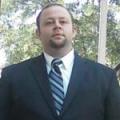Shapiro, who originally planned to delve into the world of finance, took the law community by storm after he graduated from Loyola Law School and dove, almost blindly, into litigation at the Los Angeles County District Attorney's Office—which became his catapult to success. Excelling in law with little outside guidance aside from his schooling, Shapiro has managed to quickly pick up and master the tricks of the legal trade, resulting in a career that has spanned almost 40 years.
After graduating from the Anderson School of Business at the University of California, Los Angeles, in 1965, Shapiro began to consider furthering his education in graduate school, and the draft for the Vietnam War certainly helped him make up his mind, since college students could get deferments from the draft. This was also a particularly exciting prospect for him because he was the first person in his family who went to college.
Shapiro attended Loyola Law School and was accepted into the State Bar of California in 1969. Still planning to pursue a career in finance, he saw attending law school as an opportunity to sharpen his wits for a business-related career. "I thought that law would be a good adjunct to the business world, which is what I was really interested in," he said.
Shapiro's destiny in law started to really take shape during the latter portion of law school, when he won the school's moot court competition, which earned him the title of the organization's chief justice. During his last year of law school, Shapiro began clerking for the Los Angeles District Attorney's Office, which secured him a spot on its team as a public prosecutor right after he graduated.
Despite offers from other agencies after graduation, Shapiro felt strongly about testing the waters as a litigator at the Los Angeles District Attorney's Office because it was the only place where he could gain courtroom experience. "When I graduated from law school, I wanted to be in the courtroom," he said. It was here that criminal law, now his specialty practice area, fell into his lap.
After he built a reputation based on the Linda Lovelace trial, the cases began to roll in for Shapiro. During the 1970s, the decade of decadent drug use, many top musicians came to him for representation, and that kept up for the next 10 years. In 1982, he represented Boston attorney and future fellow defender of O.J. Simpson, F. Lee Bailey, and Johnny Carson after they were both coincidentally arrested for drunk driving on the same day. Shapiro also represented Christian Brando, son of Marlon Brando, who was convicted of the voluntary manslaughter of his half-sister Cheyenne's boyfriend in May 1990 at his father's residence on Mulholland Drive in Los Angeles.
In 1990, Shapiro became Of Counsel to the firm of Bushkin, Gaims, Gaines & Jonas, a major entertainment law firm that represented Johnny Carson. There, his practice expanded to include civil litigation in addition to criminal defense. In 1995, Shapiro became a partner at Christensen, Glaser, Fink, Jacobs, Weil & Shapiro, LLP, heading the white-collar criminal defense section, and has remained there ever since.
<<
Shapiro will not comment on Simpson's current antics related to the controversy over his unreleased book, If I Did It, and his ongoing financial disputes with the Goldman family, but he will say that he learned a thing or two during the seven-month televised trial. The abundance of daily exposure that Shapiro received during that time not only tested his strength as a lawyer but also his strength of character.
"I learned to have real thick skin. It would be very interesting—you would see things being said about you and the president of the United States almost in the same breath. I learned a lot about this country. I learned a lot about the divisions between African Americans and white Americans," he recalled.
In an interview with Barbara Walters after the court's decision, Shapiro shared that some decisions in the execution of the defense excluded his approval and commented that he was "disgusted" by the tactics that defense leader Johnnie Cochran and fellow defense lawyers used to win the case, saying that they "played the race card from the bottom of the deck." So would Shapiro do it all over again by representing Simpson in his second round of public humiliation? "Generally, my representation in the criminal field is one-time," Shapiro said.
<<
"I think initially there were a tremendous amount of people who had negative feelings about the outcome of that case—and attached them to anyone who was attached to it. But I think in the long run, people know and have learned that everybody is entitled to a defense; that's how our system works. It's also been tremendously positive. I became a partner at a major law firm in which I've represented major corporations since then," he said.
<<
"I wanted to give something back because the law had been so good to me. It was clear that the Internet was going to be something that was available to everyone, and legal documents were still unavailable. The majority of people who needed legal documents didn't have them because either they didn't know or couldn't afford a lawyer, and the lawyers wouldn't be interested in these small matters," said Shapiro.
The company had a humble beginning; it started out by preparing wills for $60 each, since the majority of Americans do not have wills. "Now we have expanded, and we do every type of legal documentation that's possible and have grown into the largest firm of its type in America," Shapiro said.
<<
Misconception was not Shapiro's first attempt at writing professionally. After the Simpson trial, in 1996, Shapiro outlined his experiences and strategies during the "trial of the century" in The Search for Justice: A Defense Attorney's Brief on the O.J. Simpson Case, co-written with Larkin Warren, which was number two on the New York Times best-seller list for four weeks.
In 2004, Shapiro found himself in the defendant's seat when musician, songwriter, and powerhouse record producer Phil Spector filed a lawsuit against him for a $1-million retainer that he had paid Shapiro in 2003 to secure his legal services. Spector was arrested in February 2003 on suspicion of murder when B-list actress Lana Clarkson was found shot dead in his suburban home in California. After firing Shapiro and hiring criminal defense attorney Leslie Abramson in 2004, Spector claimed that he had been cheated by Shapiro. The lawsuit was later dropped.
<<
The 24-year-old was an honors student at the University of Southern California (USC), and he was on the dean's list for three years. Shapiro reflected on what happened, saying, "We dealt with this issue head-on, talked about it at the memorial service, and decided immediately that two things were lacking in society regarding drugs. One, it's an epidemic, and it affects everyone in this country. And two, it's a disease, and it should be treated no different than any other disease." This inspired Shapiro and his family to launch the Brent Shapiro Foundation for Drug Awareness to honor Brent and to spread the message about drug use and stop it from ruining the lives of users and their families.
If there is anyone who should be giving legal career advice, it certainly is Shapiro. So what has been the key to his fruitful career? "The ability to be able to attract clients," he said. "And the way that you can attract clients is by putting in hard work and getting excellent results when you start out."
Throughout his career, Shapiro has seen many lawyers who just cannot develop great client relationships, which really are the key lifelines to survival in law. "Many people get agitated and hostile towards their own clients, lack patience with their own clients, and forget, first and foremost, that they're in a service business. Invest in people," he said.




